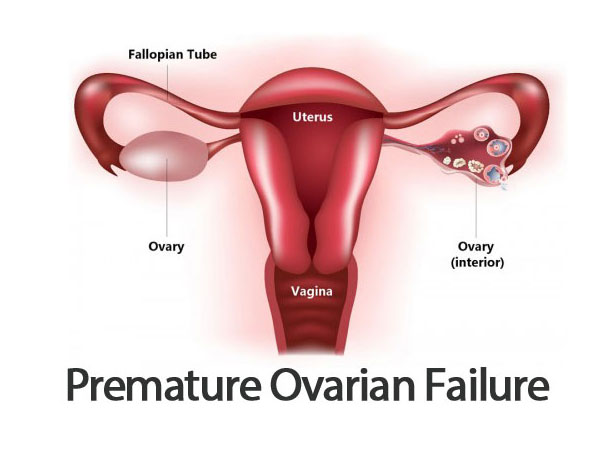
Premature Ovarian Failure Treatment in Delhi IVF

What is Premature Ovarian Failure (POF)?

Premature ovarian failure is a condition in women where the ovaries stop producing eggs unusually early, before the age of 40. This is different from the menopause, which generally occurs around the age of 50.
What causes premature ovarian failure?

Sometimes it is not possible to identify a reason why this condition has occurred. However, some identified causes may include:
- genetic problems, such as Turner syndrome
- autoimmune diseases where the body does not recognise certain tissues and attacks itself; for example, lupus
- the side-effects of chemotherapy, radiotherapy and other cancer treatments
- a number of general conditions, such as enzyme deficiencies or infections like mumps.


What are the signs and symptoms of premature ovarian failure?

The cessation of menstrual periods is the commonest symptom that raises concern. This can be associated with other menopausal-like symptoms such as hot flushes, sweats and mood changes.
How common is premature ovarian failure?

It is relatively rare, occurring in one in 1,000 women under the age of 30 and one in 100 women under the age of 40.
Is premature ovarian failure inherited?

Most cases of premature ovarian failure are not inherited. Approximately 10% of patients have a family history of the condition.
How is premature ovarian failure diagnosed?

Diagnosis is made on the basis of a careful clinical assessment, blood tests to look at hormone levels, antibodies and genetic tests, all of which can be done as an outpatient. An ultrasound scan of the ovaries is commonly performed to look at the structure of the ovaries and the uterus.
How is premature ovarian failure treated?

Ovarian failure is normally permanent. Treatment is centred on replacing the hormones that the ovaries can no longer produce (in particular oestrogen and progesterone). Hormone replacement therapy (HRT) can help with the menopausal symptoms and specifically reduce bone loss.
With regards to fertility, egg donation and in vitro fertilisation (IVF) offer affected women the best chance of becoming pregnant.
Are there any side-effects to the treatment?

It may take a little while to find the best HRT to suit each individual. Information from large scientific studies has shown that long-term treatment with HRT beyond the normal age of menopause is associated with bleeding problems, bloatedness and breast tenderness. There is also the increased risk of blood clot formation, a slight increase in the risk of a heart attack or stroke and there is an increased risk of breast cancer the longer the duration of use.
What are the longer-term implications of premature ovarian failure?

Premature ovarian failure means that affected women are infertile. Pregnancy is, however, possible through assisted conception, with success rates of up to 35% per patient, depending on the underlying cause of premature ovarian failure, the treatment type and the woman’s age.
In the longer term, the loss of ovarian hormones, particularly oestrogens, can result in osteoporosis and an increased risk of heart disease. A healthy diet including calcium from milk and other dairy products can protect against some of the long-term effects of premature ovarian failure. This includes the increased risk of fractures, particularly in the wrist and hips, as a result of a fall and in bones of the spine (vertebrae). Regular exercise can also help to maintain good bone health as well as helping to protect against heart disease and stroke.
